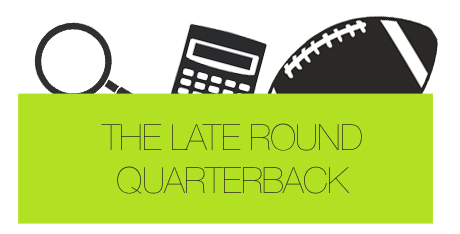Cfpb Issues Steerage To Help Banks Avoid Charging Unlawful Junk Charges On Deposit Accounts
Today’s Consumer Financial Protection Circular explains that when monetary institutions charge shock overdraft charges, typically as a lot as $36, they may be breaking the regulation. The circular supplies some examples of potentially unlawful shock overdraft charges, including charging penalties on purchases made with a constructive steadiness. These overdraft fees happen when a bank displays that a customer has adequate available funds to complete a debit card purchase on the time of the transaction, however the client is later charged an overdraft charge. Often, the monetary institution relies on complicated back-office practices to justify charging the payment.
Earlier this 12 months a quantity of banks announced they have been eliminating overdraft charges or updating their insurance policies to be more consumer pleasant. And, in latest months, a quantity of massive banks announced that they’re eliminating non-sufficient fund fees on their checking accounts. In January 2022, the CFPB launched an initiative to scrutinize back-end junk fees that value Americans billions of dollars.
Tens of thousands of people responded to a CFPB Request for Information with their stories and complaints about unnecessary charges in banking. Since then, the CFPB has taken motion to constrain “pay-to-pay” charges, and has announced a rulemaking continuing on bank card late fees. In the last yr, the CFPB has also published a quantity of research reports on overdraft charges and an evaluation of school banking products. An overdraft payment can turn out to be a surprise payment when the client doesn’t moderately anticipate their actions to incur an overdraft fee.
The second is the apply of indiscriminately charging depositor charges to each one that deposits a examine that bounces. In September 2022, the CFPB took action towards Regions Bank for charging shock overdraft fees often known as authorized constructive charges. As early as 2015 the CFPB, as properly as different federal regulators, including the Federal Reserve, began cautioning monetary institutions in opposition to charging certain forms of approved positive charges, corresponding to the ones used by Regions to unlawfully penalize clients.
Charging a payment to the depositor penalizes the individual who couldn’t anticipate the check would bounce, whereas doing nothing to discourage the originator from writing unhealthy checks. Consumers can submit complaints about overdraft and depositor fees, as properly as about other financial services or products, by visiting the CFPB’s website or by calling 411-CFPB . Employees who consider their firms have violated federal consumer monetary safety laws are inspired to ship details about what they know to
For occasion, after the financial institution permits one debit card transaction when there may be enough money in the account, it nonetheless costs a fee on that transaction later due to intervening transactions. – Today, the Consumer Financial Protection Bureau issued guidance about two junk fee practices that are likely unfair and unlawful under current legislation. The first, surprise overdraft charges, contains overdraft fees charged when consumers had enough cash in their account to cowl a debit cost on the time the bank authorizes it.
For occasion, even if an individual intently screens their account balances and carefully manages their spending to keep away from overdraft fees, they’ll simply incur penalties when financial institutions make use of processes which would possibly be unintelligible or manipulative. The bulletin explains that https://www.residencylor.com/sample-letter-of-recommendation-for-internal-medicine-residency/ indiscriminately charging these depositor fees, no matter circumstances, probably violates the Consumer Financial Protection Act. When a consumer deposits a examine that bounces, banks typically cost a charge to the depositor, usually within the range of $10 to $19. However, an individual making an attempt to deposit a examine has no concept or management over whether or not the verify will clear, and generally, that person is the victim of examine fraud. In truth, there are numerous reasons deposited checks can bounce, and the most common reason is that the check originator does not manage to pay for out there in their account.
Regions is required to, among other consequences, reimburse consumers all of https://www.mville.edu/in-news/2022/08/08/patch-manhattanville-continues-be-recognized-college-distinction the funds it unlawfully charged since August 2018 and pay a $50 million penalty. Overdraft and depositor charges likely violate the Consumer Financial Protection Act prohibition on unfair practices when consumers can not reasonably keep away from them. Today’s Consumer Financial Protection Circular on shock overdraft charges and the CFPB’s compliance bulletin on surprise depositor fees lay out when a monetary institution’s back-end penalties doubtless break the law. The CFPB has observed that monetary establishments have began to compete extra in relation to fees.
